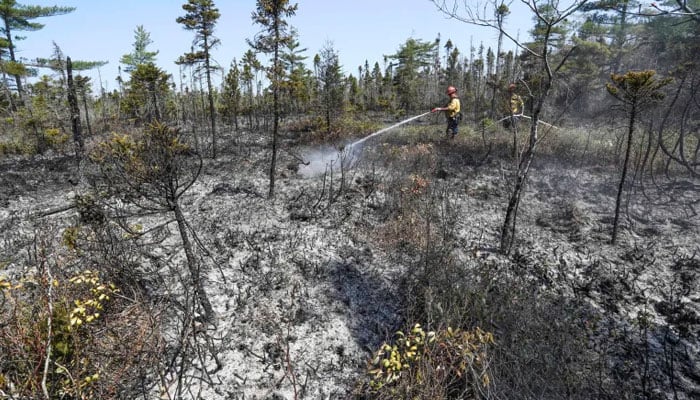Climate change: Canadian wildfires impact air quality in USA's Midwest
Authorities have issued warnings, especially for vulnerable groups like children, older adults, and those with respiratory conditions
June 06, 2023

Millions of people in the Midwest of the United States are currently facing a serious problem with their air quality. This is because smoke from wildfires in eastern Canada has traveled across the region, causing hazy skies and poor air conditions. The smoke has spread from the Ohio Valley all the way down to the Carolinas, affecting a large area.
The wildfires in Canada, specifically in the provinces of Quebec and Nova Scotia, have been particularly severe this year. Over 6.7 million acres of land have already been burned, and the situation is still ongoing. In Quebec alone, around 14,000 people had to evacuate their homes, and more than 150 fires are still active.
The smoke from these wildfires has been drifting over the northeastern United States and settling in the Midwest. As a result, air quality advisories have been issued in many areas, especially for vulnerable groups such as children, older adults, and people with respiratory conditions like asthma. Breathing in the tiny particles found in the smoke can lead to cardiovascular problems and increase the risk of respiratory diseases like asthma and lung cancer.
This issue highlights the long-term risks associated with wildfires, especially in the context of climate change. Warmer and drier conditions caused by climate change contribute to the increase in wildfires and their severity. The impacts of these fires are not limited to the areas where they occur but can affect regions far downwind.
The Environmental Protection Agency in the United States, along with other agencies, provides an interactive map called AirNow, which allows users to monitor air quality and track the locations of active fires. This helps people assess local conditions and potential risks.
It is crucial for both the United States and Canada to address this air pollution crisis together, as the wildfires and their consequences do not recognise borders. Cooperation in tackling climate change and adopting measures to prevent and manage wildfires is necessary to protect the health and well-being of people in both countries.









